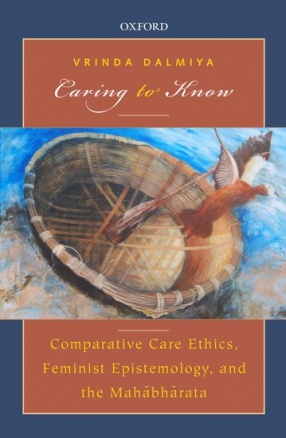As a venture in the emerging field of comparative feminist philosophy, this work goes against the current trend of considering ‘caring’ and ‘knowing’ as independent of each other. It argues for what can be called a care-based epistemology modelled on the now-familiar care ethics. Using critical insights from the Mahabharata, the book proposes that knowing and caring can be fruitfully theorized ‘together’, while keeping the argument firmly rooted in mainstream Anglo-Western virtue epistemology. What emerges is a feminist epistemology that uses the methods of creative comparative philosophy to come up with a concept of ‘relational humility’ as the fulcrum of a new theory of knowing. On the one hand, the epistemic and ethical paradigms given in the Mahabharata are interrogated though the political lens of contemporary feminist theory. On the other, the scope of traditional care ethics and virtue epistemology is broadened through a dialogue with an epic’s narrative meditations on living well and knowing well in a very different context. Such a cross-cultural exploration gives us a robust conception of a ‘good knower’ who is both an ethical agent as well as ready to make interventions in various forms of epistemic injustices.
Contents: 1. Care-based epistemology and the comparative feminist context. 2. Ethical care in a comparative context. 3. Intellectual virtue in a comparative context. 4. Deepening comparisons: further resources. 5. Caring and knowing: ethical, epistemic and political agency. 6. Care-knowing. Conclusion: So, is comparative feminist philosophy viable. Bibliography. Index.





There are no reviews yet.